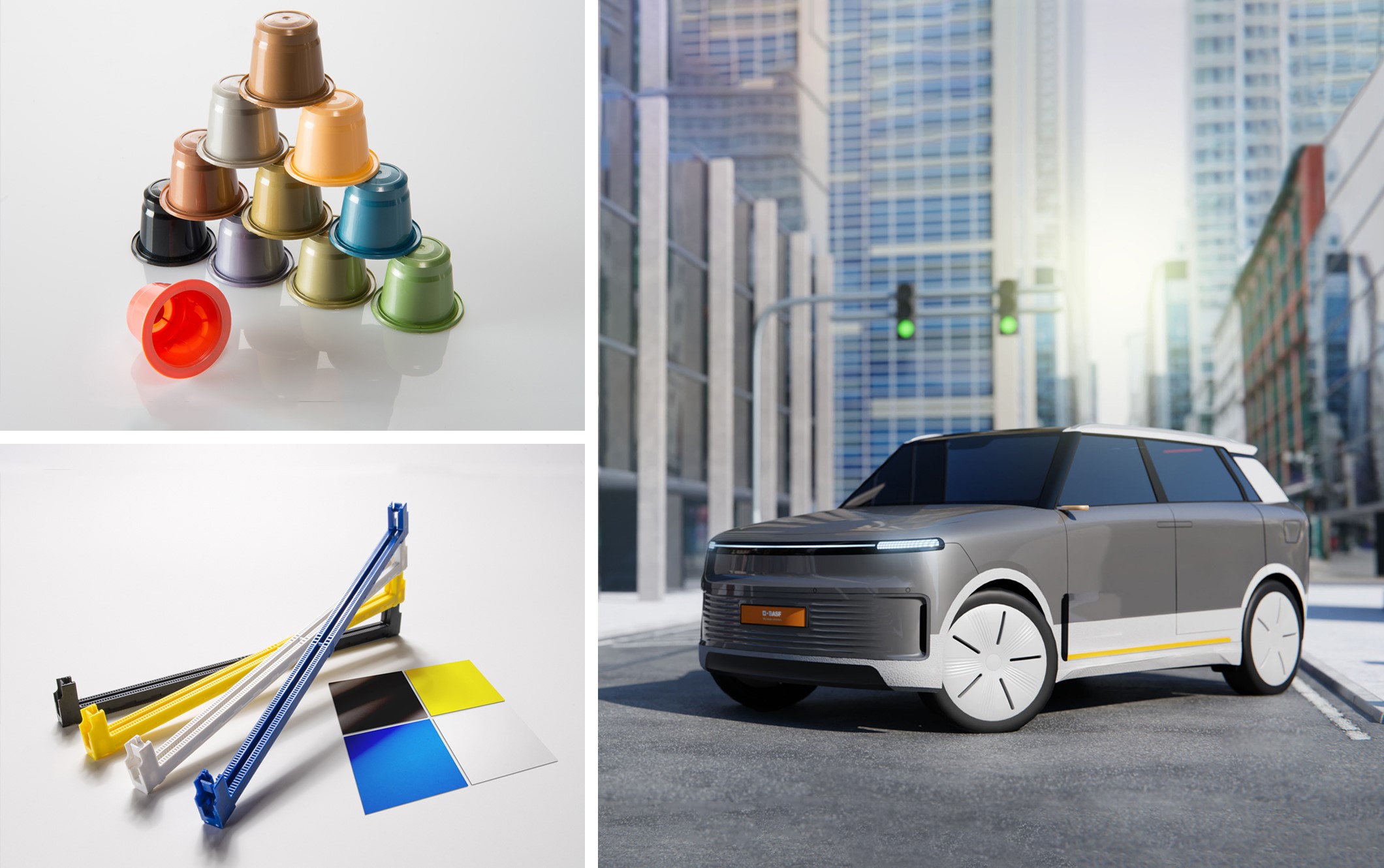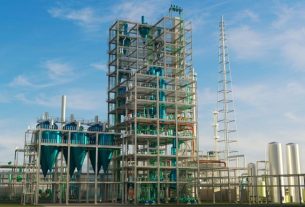Germany – BASF has established the objective of contributing to a circular economy, in which raw materials are conserved, plastic waste is reduced, and products can reach their full potential throughout use, in collaboration with customers and partners.
This requires innovations, and BASF will be demonstrating many of them in Friedrichshafen, Germany.
The automotive industry’s defining topics are alternative drives, electromobility, and CO2 emission reductions. Many applications show the versatility of BASF’s engineering plastics and polyurethanes. A wide range of novel eMobility applications will be displayed, from high-voltage connectors and bus bar holders to electromagnetically insulated housings. Additionally, engine and gearbox mounts are shown, which not only save time and money in the manufacturing process, but also contribute to superior auditory experiences thanks to improved processing processes. The Altair Enlighten Award was recently given to a tunnel reinforcing project that was a collaboration between Stellantis and L&L Products.
BASF is introducing a new flame-retardant Ultramid grade (PA66) to its line of color-stable, tailor-made engineering plastics for use in electric vehicles for the first time. The newly developed material combines color stability with mechanical strength in a novel way, allowing it to match the market’s technological standards.
The importance of modern insulation for good climatic protection
Insulation is a concern when it comes to window profiles for new construction and remodeling. BASF has developed a new Ultradur grade that can be co-extruded with PVC and has a much better property profile. PVC window profiles can be mechanically strengthened in the co-extrusion process with this innovative Ultradur. The profile is lighter, can be made more cost-effectively without sacrificing stability, and has a better insulating value than steel stiffening.
In the packaging industry, sustainability is a major trend.
BASF now offers bespoke, sustainable materials tailored to customer demands with its revolutionary line of Ultradur FC grades (PBT) for coffee capsules. In addition to the basic material Ultradur B1520FC R01, the customer can choose from a variety of product-specific features and services, which can be employed separately or in combination. Weight savings of up to 40% are possible, and barrier characteristics (oxygen barrier) can be improved even more. ChemCycling and Biomass Balance kinds are available in addition to the traditional PBT grades, resulting in significant CO2 savings.
Ultradur B6560 M2 FC TF, the world’s first PBT for extrusion of films and thermoforming of food packaging, is also part of the PBT portfolio. The mono-material has good barrier qualities and can be mechanically recycled, resulting in a closed material loop. The remarkable processability was validated in actual tests in collaboration with Illig, one of the major manufacturers of thermoforming machines and a BASF partner.
Ultrason for usage in the home, automobiles, and E&E
Ultrason (PAES) has a wide range of applications in the home, automobile, and electronics and electronics industries. BASF is demonstrating the processing and design possibilities Ultrason® offers for safe, stable, and elegant bottles at Fakuma with a variety of water and infant bottles. New materials with high tracking resistance (CTI) have been developed for the automotive and E&E industries, allowing for unique components for electric vehicles and E&E applications.
Ultramid Advanced is a high-performance fuel cell and consumer electronics material.
BASF offers a high-performance alternative to aluminum die-cast components in fuel cell engines for buses and delivery trucks with Ultramid Advanced N (PPA). On the stand, a thermostat housing and a manifold illustrate BASF’s PPA’s superior thermal and chemical resistance, remarkable mechanical capabilities, high impact strength, good dimensional stability, and consistent long-term performance. In addition, BASF is introducing a new Ultramid® Advanced N grade, which is ideal for connectors that are post-processed using surface mount technology (SMT). BASF offers the new polyamide 9T in a variety of customer-specific hues and with excellent stability. The new PPA improves the reliability, performance, and robustness of power and data connectors in consumer electronics, such as computers, servers, cellphones, and smart home and portable electronic devices.
Polyurethane thermoplastic based on sustainable raw ingredients
BASF is displaying Elastollan N (TPU), a bio-based thermoplastic polyurethane with the same exceptional performance profile as fossil-based Elastollan grades. The sustainable raw material grade also has good mechanical features, such as high tensile strength and elongation, as well as high UV and aging resistance. The bio-based TPU may be used in all of Elastollan’s previously mentioned applications, such as cable sheathing, films, and conveyor belts, as well as a variety of injection-molding applications in the automotive and E&E industries.




